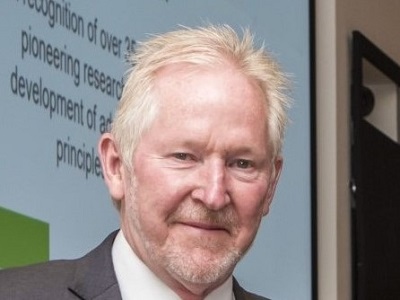
Prof Robin Smith
Director of the Centre for Process Integration, School of Chemical Engineering and Analytical Science, the University of Manchester, United Kingdom
The Role of Process Integration in Rethinking Future Industrial Energy Systems
Solving the energy trilemma of the low-carbon, affordable and secure supply of energy will require a complete rethinking of future energy systems. Maximising the sustainable provision of energy requires that energy systems should strive to satisfy human needs in an economically viable, environmentally benign and socially acceptable way. Given the major uncertainties facing future energy systems, there is a need to establish flexible solutions to allow for the local supply and demand of energy, future changes in supply and demand, and technology developments.
The energy intensive process industries account for around 70% of total industrial energy consumption and 45% of global greenhouse gas emissions. For example, the chemical and petrochemical industries use 10% of global energy consumption and generate 7% of greenhouse gas emissions. In the energy intensive process industries as a whole, energy consumption and greenhouse gas emissions are currently mainly from the combustion of fossil fuels to produce process heat and power. There is also currently gross inefficiency in the way this energy is used, with around 40% wasted as low-temperature heat (<150° C), mainly to cooling towers, air cooling and furnace stack losses.
Primary energy in the energy intensive process industries is currently overwhelmingly dominated by the use of fossil fuels, mainly natural gas and oil, but also coal in some countries. If these industries are to be transformed from huge energy consumers and greenhouse gas emitters, a switch to renewables and waste-to-energy systems is required. However, the energy intensive process industries also have some special energy requirements that bring additional difficulties for such a switch. Firstly, the heating requirement is often far higher than the power demand. Secondly, heat is often required at very high temperatures. This means that in the future if there is a wholesale switch to renewable power, then the use of renewable power has limited potential to substitute fossil fuels directly, because of the large heat demand currently satisfied by steam heating and the high-temperature heat demand currently satisfied by firing fossil fuels in fired heaters. Thus, an appropriate mix of different renewables would be required to satisfy differing heat and power demands. Heat can in principle be provided by biomass, biogas or waste-to-energy for high-temperature process heating and the generation of steam and power at least to some extent by wind and solar photovoltaics. However, because of the intermittency of supply of renewable power, some storage will most likely be required. Such storage is also beneficial for smoothing variations in demand and to compensate for variable power tariffs. In addition to storing electricity, storage can be used for heating or cooling. Currently, energy storage within the energy intensive process industries is hardly practised at all.
To solve this problem requires rethinking the way in which industrial energy is supplied, combining the most appropriate sources of energy, including renewables, waste-to-energy systems, the symbiotic exploitation of waste heat and energy storage to match local power-to-heat ratio demand and heating requirements both in terms of duty and temperature in a more efficient and environmentally sustainable way than current approaches. Process integration methods have a long established track record in reducing energy demand and greenhouse gas emissions. This presentation will address how process integration methods can be used to apply a holistic and life cycle approach for the conceptual design of integrated industrial energy systems. This necessitates utilising a range of energy sources, allowing for the variability of supply and demand, and including life cycle considerations.
CV: Professor Robin Smith is Director of the Centre for Process Integration in the School of Chemical Engineering and Analytical Science of the University of Manchester. He co-founded Process Integration Limited and Process Asset Integration Management Limited (ProAim), both spin-out companies from the University. He has extensive industrial experience with Rohm & Haas in process investigation, production and process design, and with ICI in process modelling and process integration. He has acted extensively as a consultant to industry in process integration projects. He has published widely in the field of process integration and is the author of “Chemical Process Design and Integration”, published by Wiley. He is a Fellow of the Royal Academy of Engineering, a Fellow of the Institution of Chemical Engineers in the UK and a Chartered Engineer. In 1992 he was awarded the Hanson Medal of the Institution of Chemical Engineers for his work on waste minimisation. In 2018 he was awarded the Sargent Medal of the Institution of Chemical Engineers in recognition of over 35 years leadership and pioneering research leading to the